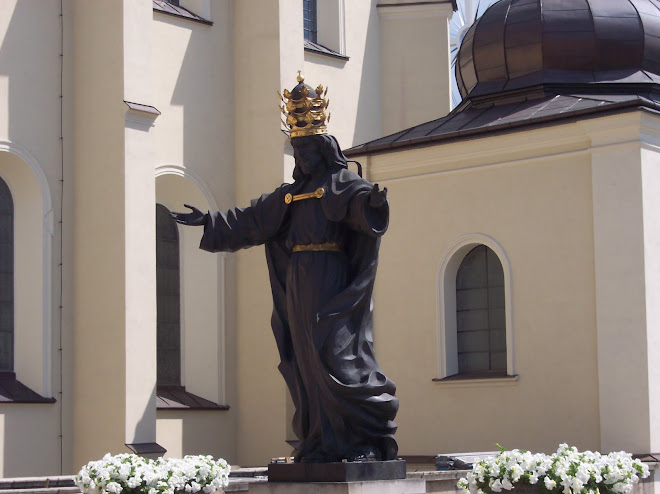My answer to the question is, "Not yet."
Let me start by stating the obvious - I am no philosopher, and I am not about to say anything profound, startling, or new.
A long time ago I read most of Plato, Aristotle, and, of course, the Dialogues of their fountainhead, Socrates.
The biggest surprise for me was reading the amazing dialogue between Chanticlere and Pertelote, cock and hen, in Chaucers Nun's Priest's Tale. Their subject, predestination, still grips and worries me.
The argument put forward by Chanticlere, as I remember it, is this: If God is omnipotent and omniscient, then He must know the future.
If He knows the future, then the future is already determined.
If the future is already predetermined, then we have no freedom of action, no free-will.
To extrapolate beyond Chaucer, if we have no free-will, we cannot choose between Heaven or Hell.
Divine Justice is therefore unjust.
About twenty three years ago, when I was struggling with Catholicism, I read a book whose title I forget, by a Jesuit Chaplain (of Eton College, but I don't hold that against him - I forget his name too).
It was a series of meditations on the life of Saint Francis Xavier, who intended to convert China, and of course died before he had even started. One remark sticks in my mind.
"God sees us, not as we are, but as we are becoming."
Of course, because God knows our intentions.
I accept three spatial dimensions, but the fourth, time, is fundamentally different. We can travel in three dimensions, exist in them, measure them, but in time, we can travel only forward. It is not, I think, a dimension in the same sense as the others.
The future does not yet exist. Future souls may indeed exist - that is beyond me, but the future has no existence - yet.
How can God know what does not exist? It's reminiscent of silly questions such as: 'Can God make a stone so heavy that He cannot lift it?'
or 'Can God create a more powerful god than Himself?' Whether the answer is 'yes' or 'no', the questioner will claim to have proved that God is not omnipotent.
I would suggest that God cannot know what is not, because such a possibility is a nonsense.
Your views, please.
Hatred Explained
-
So, what is emerging one week after Charlie Kirk’s brutal assassination?
The assassin was the “boyfriend” of a male who fancies himself a woman.
That is, h...
7 hours ago






































3 comments:
I think that you are forgetting that time is also a part of creation; to speak of the future in relation to God is to create a false problem. He is outside time just as he is outside the three dimensions of space.
In my humble opinion, and it is just opinion, it works like this:
The physical world confines us within space, time and gravity. God created the universe, so he lies outside all these constraints. He created it so that he could share his glory with his creation, he didn't need to to this, he has no need of us. Everything he creates is created good.
He gave us free will; we can choose to know, love and serve him, or we can choose disobey. God cannot force us to do anything, we have to desire him, God will not interfere with our free will becuase he is our perfect lover, and we have to go to him freely.
Hence, predestination all looks a bit clunky and mechanical. I relates more to the deistic tradition of a god who created the universe and then sits back and watches it all unfold like a giant piece of clockwork.
God comes into our universe, revels in his creation and desires its free submission and praise of his glory.
The real question is; why do we fail him so badly?
Richard - Thank you. I need to think this through and will come back if my thoughts lead anywhere. For the moment, "ex Patre natum ante omnia saecula" (= before all ages or worlds) suggests that time is an objective fact, not just subjective, to us mortals as a mark of our changing circumstances, but in the sight of God too.
Rita - thank you. I certainly don't accept predestination. Your last question, which relates to human frailty, is very interesting, but beyond my scope. Have you written a post on it?
Post a Comment